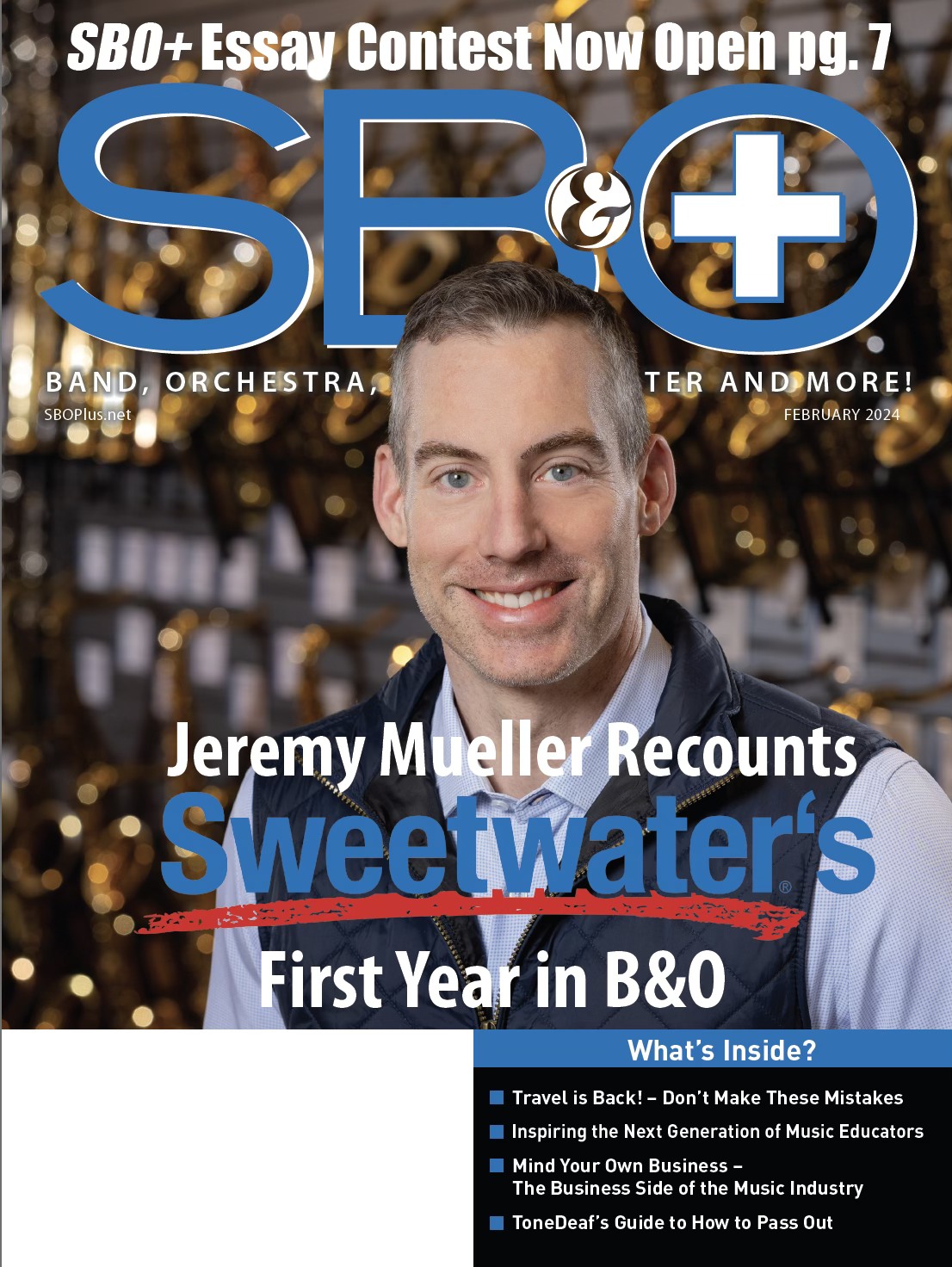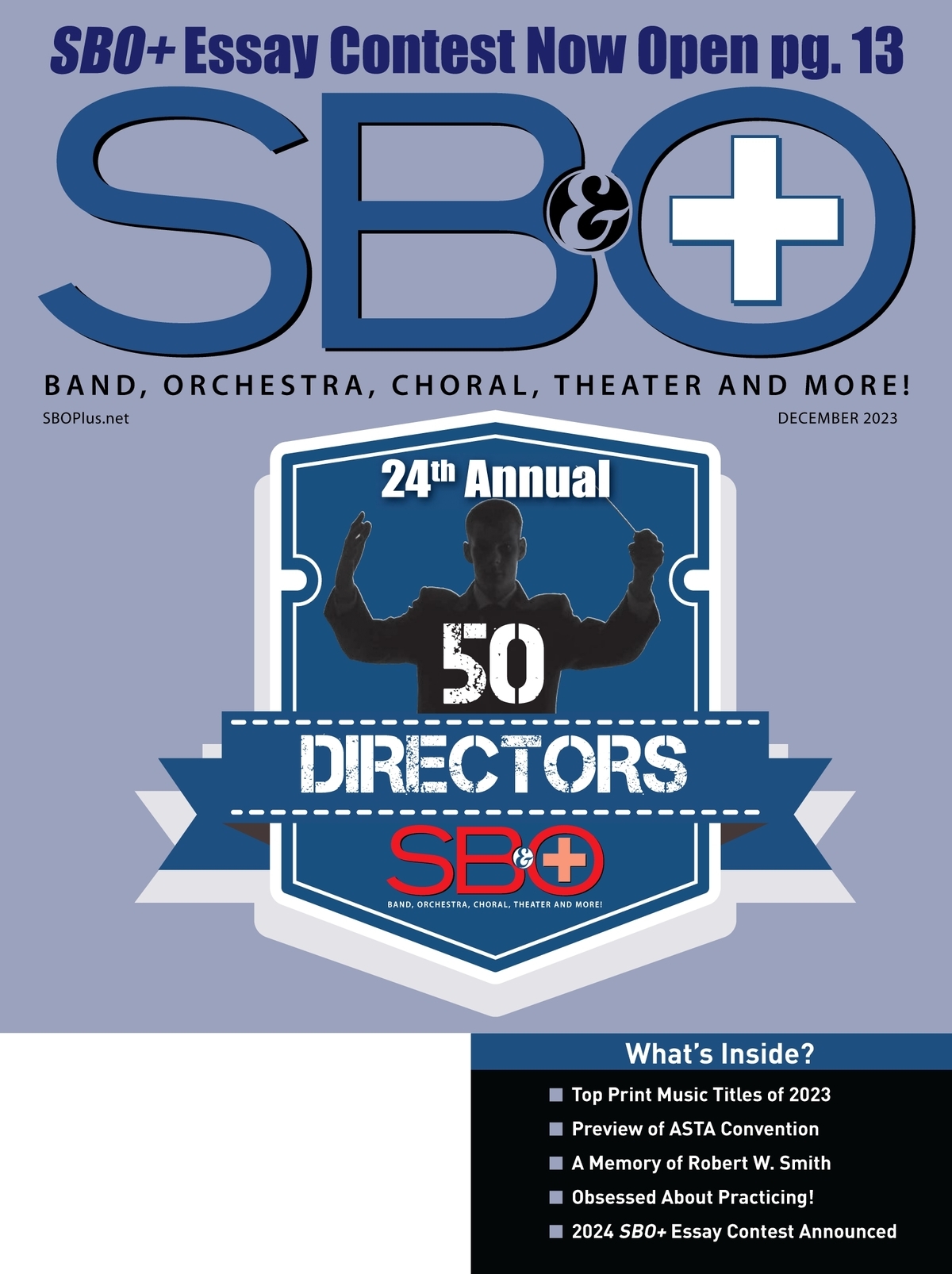EDUCATORS SUBSCRIBE FOR AS LOW AS $0.00! CLICK HERE!
 Tours with American high school bands, choirs, and orchestras are about as American as apple pie. However, before jumping onto that bus or plane, you want to make sure you know what you are doing.
Tours with American high school bands, choirs, and orchestras are about as American as apple pie. However, before jumping onto that bus or plane, you want to make sure you know what you are doing.
Getting Started
The first step is to figure out exactly where you want to go and what you hope to accomplish. Remember, you are going to have to sell this idea to several groups: students, parents, boosters, administrators, faculty, and, most importantly, the school board. Get your tour idea fully together before you present it and make sure you have approval from all the right people early on so that your trip isn’t shut down late in the game.
Next, decide on a tour. For most music teachers, selection of a tour is usually based on the performance venue. Be careful to also remember the goal of educating students about the area you’re visiting. Therefore, look for balance in tourism, shopping, and performance. There are basically two kinds of tours: big festival tours and exchange tours. For an exchange tour, especially overseas, it is critical to work with an agency that has experience in that particular country – including a track record of setting up performances for ensembles like yours and familiarity with moving groups around the country.
Although travel agencies try to get performing ensembles to attend certain festivals and venues, it is possible to set up your own personalized tour based on your criteria. An idea I I’ve found to be successful is to look beyond the “typical” venues in a given location. For example, when choirs, go to Rome, they all want to perform at St. Peter’s Basilica. That’s wonderful, except I have heard many groups complain that few people actually stop to listen, apart from during special services. I wouldn’t complain about at opportunity to perform in St. Peter’s, but the Vatican has several other cathedrals in the city that can be just as nice. My own student group performed a sacred concert for band in one of the smaller church’s that turned into a Sunday afternoon standing room only concert with little advertising. The parishioners of that congregation felt special. Go to the people, rather than expecting them to come to you. Go to places where your performance will be appreciated. You don’t have to perform in the big venues to have a great tour.
Dollars and Sense
Once your ideas are together and you’ve received all the necessary approvals, it is now time to begin looking for funding. There are several approaches: fundraising, grants and corporate sponsorships – or even making the parents finance the trip. Of those choices, the most likely will be the parents and students paying for the trip themselves. Therefore, it is important that you have a good sales pitch.
Fundraising is an “okay” option, but consider that the money needed for an overseas trip is normally between $2,500 and $3,000. It takes an awful lot of sales to raise that kind of cash – candy bars generally offer only a 50 percent profit margin.
My biggest success in funding a tour is getting the parents and students to supplement their cost by getting support from companies, relatives, friends, et cetera. I call them “grant letters.” Write an official letter from the district that is signed by you, the principal, and the superintendent. It should include all information for whom, where, and when to send their checks. It should also include the 501c3 number of your booster group. Another option is that you can send out official letters to help support kids who may have trouble coming up with the last few dollars.
I like to pay half of one student’s fees if there is more than one child in the program from a given family. I finance this by charging an extra $200 to parents who want to go along. If you feel comfortable taking parents along always charge them extra, as they will incur additional costs for housing. Kids are often housed in quads or triples. If you are taking parents, make absolutely sure they understand this is a school tour and not a vacation there is work to do.
Finally, always charge more than the travel agency bids for, as there are always more expenses than expected. If you try to break even you will probably lose. I always charge $100 more for international, and an additional $50 for domestic travel. (For example, who is going to pay for the busses to the airport?) Believe me, there will be nothing left over.
Who Else Is Going?
Depending on the size of your group, you may need additional supervision. If this is a high school group, I would suggest bringing as many of the faculty as you can. Kids respond better to teachers and administrators than to parents. Parent chaperones tend to over-discipline. You don’t need that.
One important concept that you must convey right away is that the school rules don’t stop when you leave for the trip. If the kids can’t be trusted then you shouldn’t go. Kids who break the rules ruin the trip for everyone. One of the best comments made by my principal to my students on a trip to China was, “When the plane took off from San Francisco you left all your freedoms behind. You get in trouble here they don’t turn you over to us, they put you in jail and we have to figure out how to get you out.” That made a real impression on my students.
Another thing you should consider on a trip is the number of people (guides, drivers, et cetera) being hired by the travel agency. Don’t let travel agencies talk you into a cheaper price when in reality they don’t have enough people working the tour. If you have a large group, say over 75 students, you need someone not tied down to guiding or driving that can break away and work on housing setups and deal with any problems that come up – believe me, problems do come up. That person(s) needs to be able to speak the language and have the ability to come up with solutions. On a recent trip to Italy with my band, I spent hours in the airport trying to find missing instruments and luggage. It was particularly difficult because I didn’t speak the language or know what to do.
Lists, Lists, Lists
You will have to make lists for the trip. I find this the most challenging part of the trip, especially if you have a large group. The tour agency will need housing lists, equipment lists, airline lists, and lists you never thought you would need. Things have changed drastically since 9/11. You can’t just let kids move from room to room on a whim. You can’t just replace one name on an airline list with another. It will cost you a lot of money now. Therefore, make sure you have what you need before sending in the lists.
- Rooming Lists: Start this one early. Let the kids room with whom they wish to. The travel agency will give you the configuration (number of quads, triples, doubles, singles) you will need for your group. Let the students know there is a cutoff for their rooming decisions, and don’t allow changes after the cutoff.
- Equipment List: The airline will require this list. You can also negotiate with the airlines to not charge you for any extra equipment by agreeing to count the gear as the second luggage.
- Passport Lists: Hotels in many countries require passport numbers for the students in each room. Many also now require the actual passports for registration. After the students have arrived in the country collect all the passports just in case the hotel needs them for registration.
On the topic of passports, you will need to remind students they need their passports well ahead of time. It now takes up to 11-12 weeks to process a passport. If the country you are traveling to requires a visa for entry, you will need to have all passports in up to two months before you leave. Take this part seriously, as there are a lot of groups getting in trouble for not processing their passports in on time. If you are having problems, contact your local congressman. They have people on staff that work on these kinds of problems.
Fitting In
When thinking about what music to perform, the more diverse your group is, the better. Remember: you are not always performing for audiences that understand our literature. Do your homework and find out what your audience would like. It is their country, not yours. Send your list of music to a representative from the country you’re traveling to and see what they think.
It is customary in some countries to exchange gifts. This may not seem important, but it might be to those whom you are visiting. I personally find gift-giving to be a little difficult, since it is hard to predict what folks will like. Let me give you some suggestions: Try getting a local artist to donate a work of art from your area. Another idea is to find a book or two that demonstrates what your region is like. If you are doing an exchange concert with a local high school or university, find books for their library. If you are doing an exchange concert with another choir, order an extra set of the music that you are performing, then give it to the other group as a gift for their music library.
Final Prep
During the last minute preparations, put together a checklist of what you want to make sure the kids bring. If you have a large group, request some of the kids bring in their luggage a day earlier.
One other step you might take is to check with the airport ahead of time about where to bring in your busses. Big groups really need to do this.
Remember, the more you do at home, the less you will have to do when you arrive at your destination. Try to think through every day of your tour. Most importantly, ask questions, lots of questions. If your travel agency doesn’t answer them, then get another one. Traveling with my groups has been an extremely rewarding experience. Maybe we can’t win all the big reviews and festivals, but we sure have fun.
D.L. Johnson is the director of Bands at North Monterey County High School in California. A music educator for over 30 years, Johnson is the past president of the California Association for Music Education. He presently serves as a National Networking Mentor for MENC, and is on the board of World Harmony Exchange.






